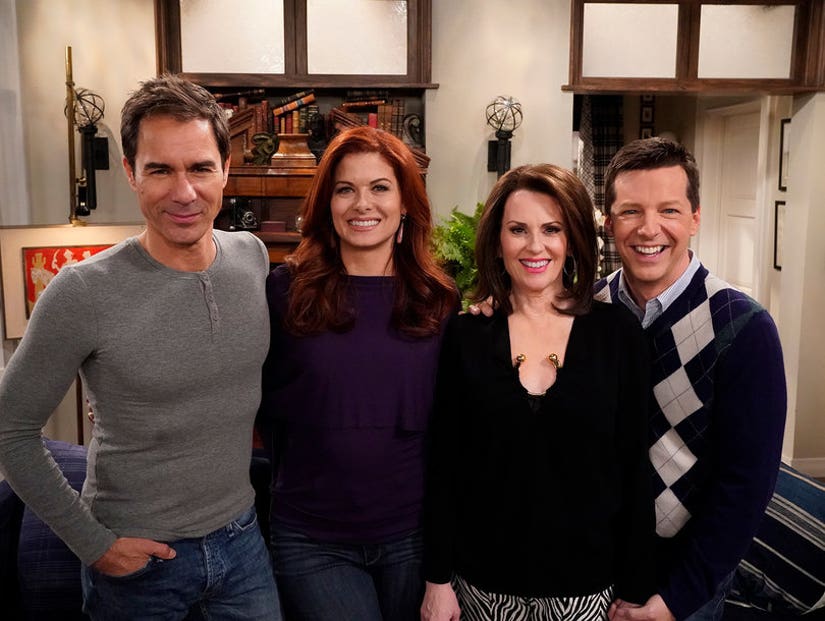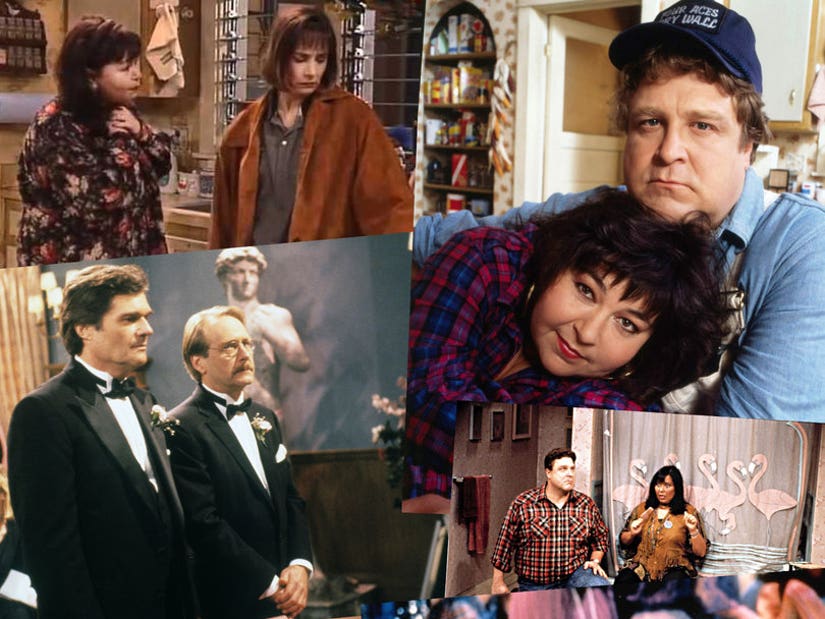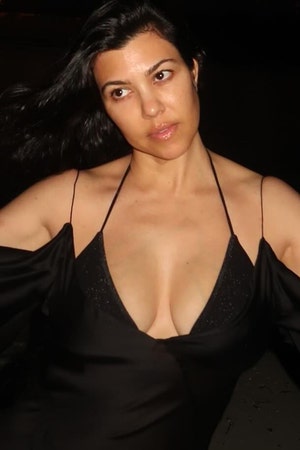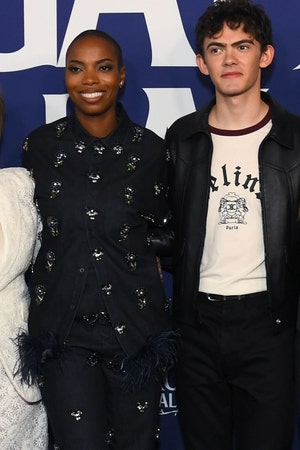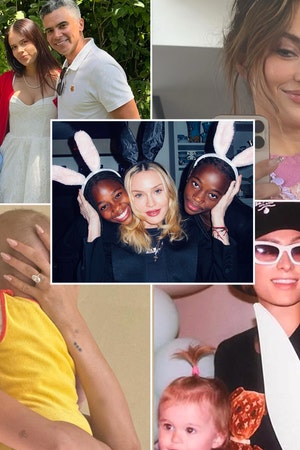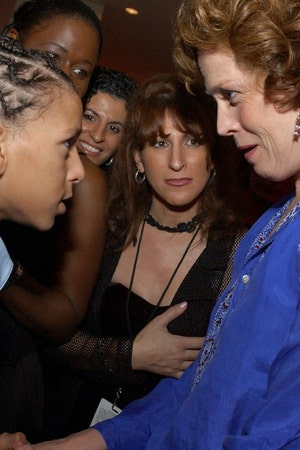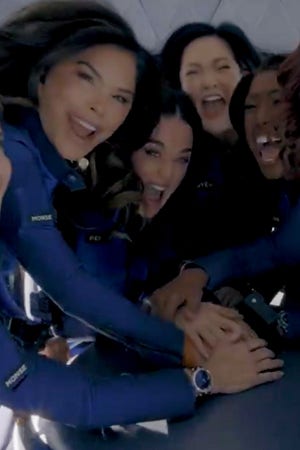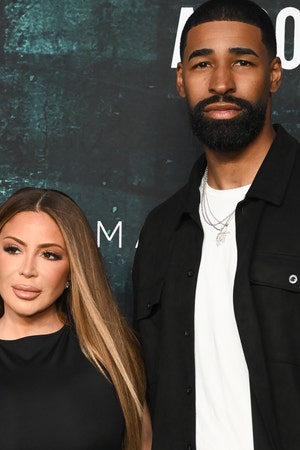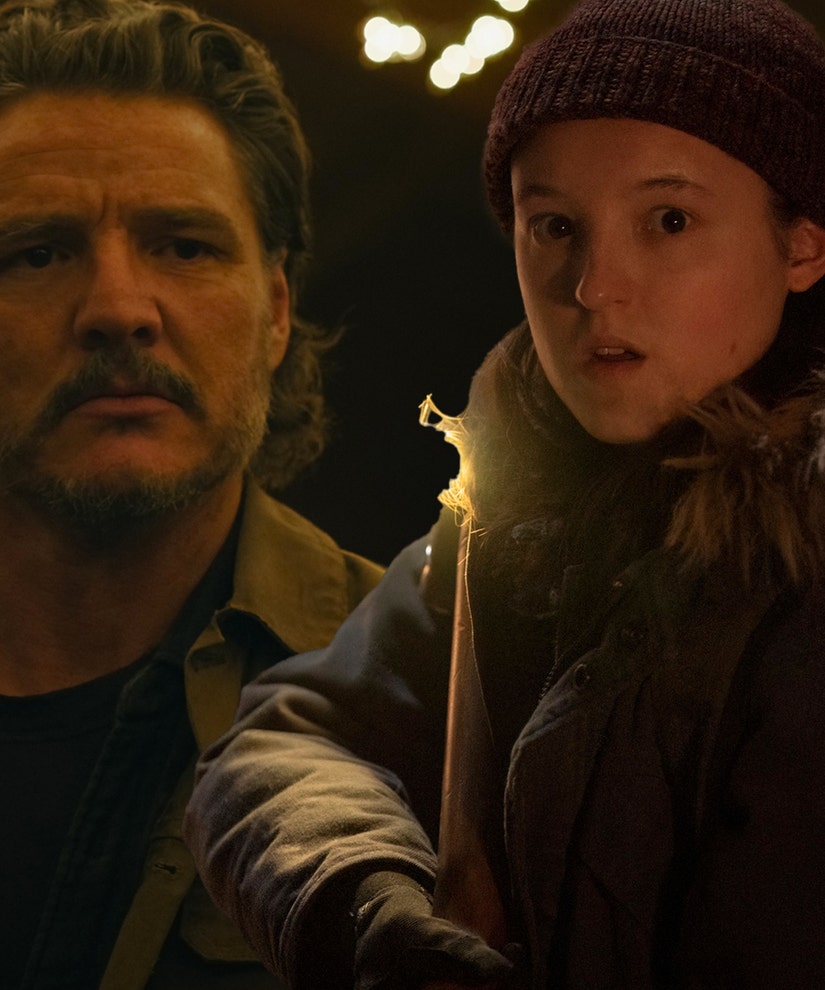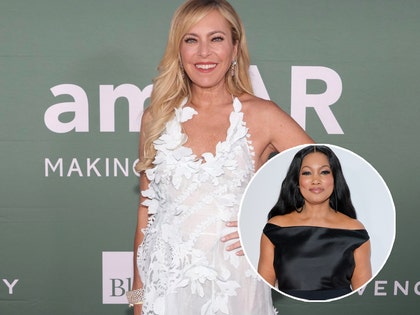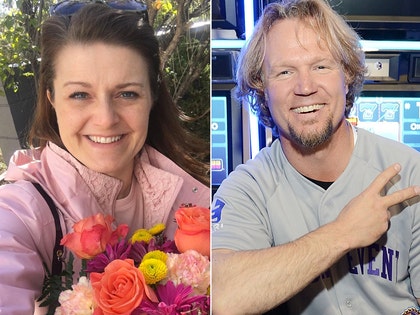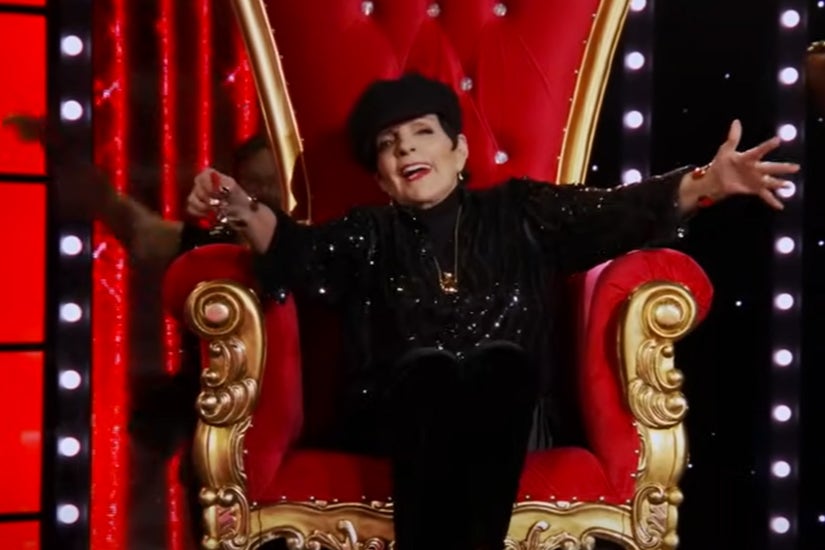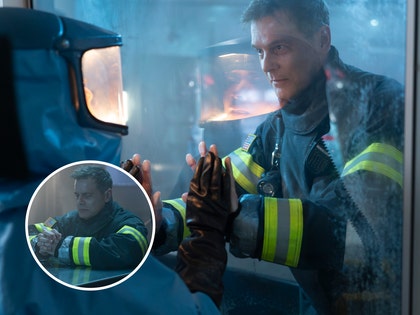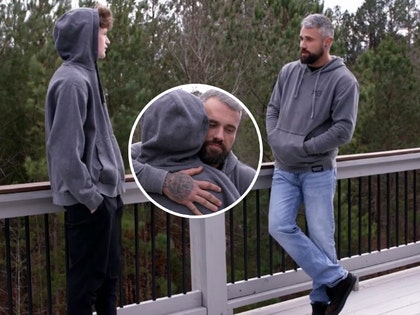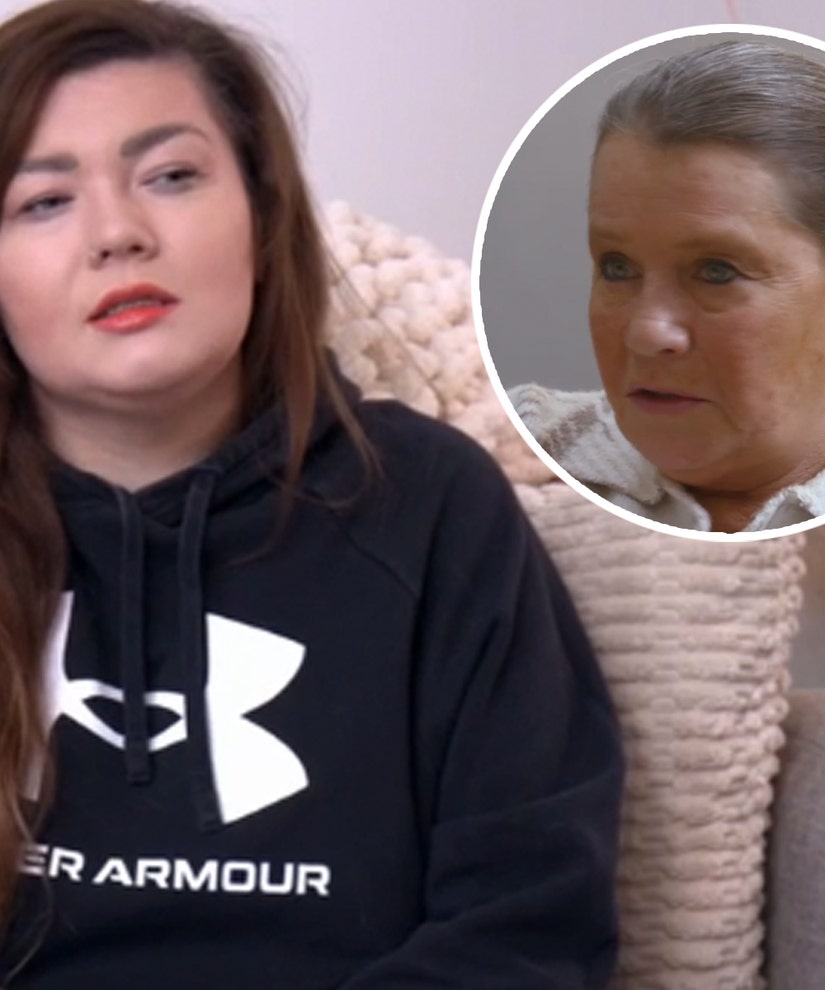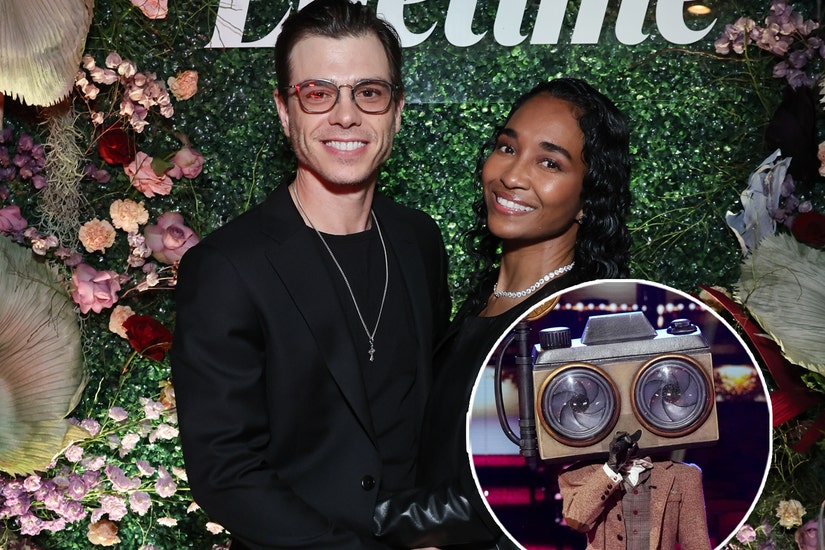Even though we are in an era of unprecedented reboots and revivals, it's no mistake that both "Will & Grace" and "Roseanne" have returned. Both shows were groundbreaking for their exploration of hot-button topics and largely ignored social groups. "Will & Grace" just wrapped its first revival season, with two more already ordered, so it's time to look back and see how it shined in today's politically-driven climate, and in what ways it fell short and needs to improve.
When "Will & Grace" premiered in September 1998, it was the first time a show had a gay lead, and eventually two as Sean Hayes' Jack rose alongside Megan Mullally's narcissistic socialite Karen to create the power foursome that drives the series. Eric McCormack's Will subverted expectations by defying most of the gay sterotypes that had dominated homosexual male characters on television to that time -- Hayes, on the other hand, embraced and then subverted many of them. Debra Messing's neurotic mess Grace rounds out the foursome.
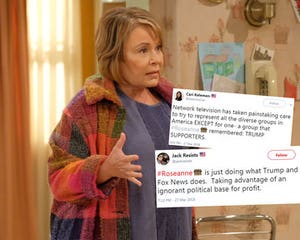 ABC
ABC
'Roseanne' Premiere Divides Twitter Over Trump: 'Refreshing,' 'Hilarious,' 'Ignorant,' 'Go Straight to Hell'
View StoryMany of the issues that "Will & Grace" explored during its original eight-season run remain in the forefront of society. Television, meanwhile, has evolved tremendously, with the growth of multi-camera sitcoms and avant garde cable and streaming programming.
Did "Will & Grace" do enough to remain relevant and on that cutting edge it rode through most of its run, or did it return looking like a relic of a bygone era? A bit of both, actually. Let's take a look at the ways the revival exceeded our expectations, and the ways in which it feel short.
PLEASE STOP
Trump Dump
We're hopeful they've already gotten this out of their system, but the season premiere was like someone vomited a year's worth of pent-up Donald Trump frustration all over the script. "Roseanne" went a little heavy-handed on Trump in its premiere as well, but nothing like what "Will & Grace" forced its fans to endure. The show is lucky anyone returned after an episode that sunk so low as to have a Russian-English dictionary in the Oval Office.
We get it, you're frustrated that Trump and his gay-unfriendly agenda are in the White House, but there are ways to address it without going to cartoonish levels of lunacy. "Will & Grace" social commentary only works if it's grounded in some semblance of normalcy.
Time's Up
While we can concede that the fourth episode's exploration of workplace harassment may have been in development before #MeToo erupted in 2017, it doesn't make it any less tone deaf. The fact that it was Karen harassing an attractive male employee only made it worse. In fact, unless the writers are willing to have Karen genuinely face her treatment of minorities and people of lower social standing, they should probably just avoid topics like this altogether. After all, Karen would have to grow beyond her deplorable treatment of others, or at least face consequences for it, and neither of those things are going to serve the character's comedic beats.
Later, in an episode that saw Will and Grace on QVC, a nameless producer tore Will down constantly for mansplaining (and basically being a man). This was a chance to explore this legitimate gender divide that wasn't taken, either. Instead, it was just an odd character quirk. It's as if "Will & Grace" knows how to handle same-sex issues, but lack the courage to dig into those between the genders.
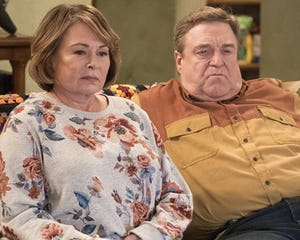 ABC
ABC
5 Reasons You Should Give 'Roseanne' a Chance, No Matter Your Political Views
View StoryGay Stereotyping
For everything it gets right about gay culture and gay life in America, it remains frustrating that "Will & Grace" maintains the broad stereotype of gay people -- mostly men -- as whores. Having Jack explain that gay culture starts with the hookup and then might expand into a relationship from there is a reductive and possibly dangerous stereotype to perpetuate in a society with a large segment that still thinks of homesexuality as a sexual deviance.
Jack treating gay men as horndogs who hook up with randoms on the regular presents them as sexually obsessed -- which is just a step away from sexual predator -- without taking into account the full range of homosexual relationships and types of men (and women) who are gay. Now that we're comfortable seeing gay people represented, it's time to truly represent them.
Stale Tropes
Nobody was expecting "Will & Grace" to emerge in the new millennium with the storytelling innovation of "Arrested Development" or creativity of "The Office" and "Parks & Recreation," but we did hope it would leave some of its traditional sitcom tropes in the past. And yet, we got a scene where Will's mother and Grace's father meet ... so of course they hook up and decide to get married. They even mined "Three's Company" for a plot built around a misunderstanding with sexual undertones (Will thinks he's talking about firing an employee, the employee thinks they're talking about getting together).
These plots are tired and overdone and they're just not very smart. The season even ended with Will and Grace wondering if by living together they've become too close and maybe it's time for a change. How many times have we seen this? There's a difference between familiar and repetitive or derivative.
Greatest Hits
And while we're complaining about repetitive, one of the biggest complaints fans had of the original run was that "Will & Grace" became guest-star-apalooza in its later seasons. It felt like the writers had run out of ideas to do with the core four characters and so they decided to bounce them off of famous people and big guest stars to see how they responded. It didn't help that the show was so beloved, everyone was willing to be on it.
While we haven't seen Cher show up just yet (though J.Lo did drop by), we nevertheless got a whole slew of guest stars, with many of them bringing back characters from the show's past. We love a callback as much as the next person, but when more than half of your episodes are built around trotting out the greatest hits, it can get tiresome. Especially when some of the strongest episodes either featured no big guests, or new ones.
 Getty
Getty
Why 'Will & Grace' Stars Don't Want a Trump Cameo and Which Celebrity Guest Had Biggest Entourage
View StoryKEEP IT UP
Character First
Some of the strongest episodes have kept it simple, either focusing exclusively on the core four or partnering them up with fresh and new characters like Nick Offerman's gender fluid baker. The heart of the show and the reason we fell in love with it in the first place was the dynamics between Will, Grace, Karen and Jack. Okay, let's be honest, it's really about Karen and Jack.
This revival was born after their special election mini-sode proved that the chemistry between the four was as strong as ever (it helped take us back in time that they all look like they haven't aged a day). The show doesn't need big guest stars or too much distraction from what works. We want these four people firing barbs and jokes at one another. It really is that simple, and it shines when they give it to us.
Gay Life
When the second episode of this revival started exploring what it was like to be gay as a middle-aged man, we were riveted. Here was an exploration into something new in popular entertainment, and it was handled beautifully. Then later, Nick Offerman showed up to bring a whole new type of sexuality to the fore. As progressive as "Will & Grace" was in its first run, it never depicted the titular pair hooking up with the same person. Sexuality was generally depicted as straight or gay.
This inclusiveness is the kind of growth we want to see, even if it proved a little too close for comfort when Offerman suggested it was time to have a threesome with both Will and Grace at the same time. It's time to welcome gender non-conforming characters and transgender people. "Will & Grace" should make it a mission to explore the entirety of the LGBTQIA+ acronym, just as their original mission was to normalize homosexuality for the masses.
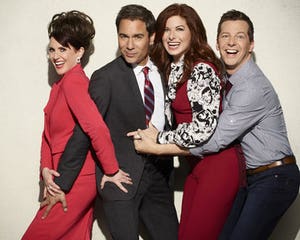
'Will & Grace' Blooper Reel From Season Premiere Is Funny -- F-Bombs, Pillow Fights and Crotch Grabs!
View StoryGay Issues
In that exploration, it was great to see the show also shining a light on the darker side of being gay in America. And with Mike Pence as vice president, it felt so timely and right to spend an episode at a gay conversion camp, after Jack discovered that his son and conservative wife was sending his grandson there. The episode gave us a wonderful exchange where Jack told him there was nothing wrong with him, while gay actors Jane Lynch and Andrew Rannells killed it as obviously-gay counselors struggling with their own conversions.
The episode was both poignant and laugh-out-loud hysterical, proving that "Will & Grace" can be as relevant as it ever was, when it points it sharpest satirical barbs at the issues that cut close to home organically for its characters. "Will & Grace" will always shine brightest when it is true to the gay experience, exposing both the positives and the negatives of living as a misunderstood and often vilified segment of society.
Socially Progressive
While gay issues will always be at the heart of the show, it was nice to see that they could explore other key issues just as thoughtfully (harassment notwithstanding). In one episode, Will and Grace attended a baby shower where Grace felt judged by all the mothers for being a childless professional. But then it came out the moms all felt judged, too, and it was just a wonderful opportunity to explore the stereotype that women tear each other down and subvert it. These women took a tense moment and used it to lift one another up, and perhaps more importantly, they openly and confidently spoke their truths. Maybe there's hope for "Time's Up" on "Will & Grace" after all.
In a later episode, Grace found herself arguing with a baker on behalf of Karen over a MAGA cake, considerately exploring the liberal hypocrisy of demanding bakers make cakes for gay weddings while being horrified at demanding those same rights for Trump supporters or -- later in the episode -- even hate groups like the KKK. It was an uncomfortable half hour, but it was also funny and deftly left viewers feeling conflicted in their own views, which is not a bad way to be.
Challenging ideologies is how we grow and evolve as people, and we're hopeful "Will & Grace" continues to be a comedic way to help with that growth.

